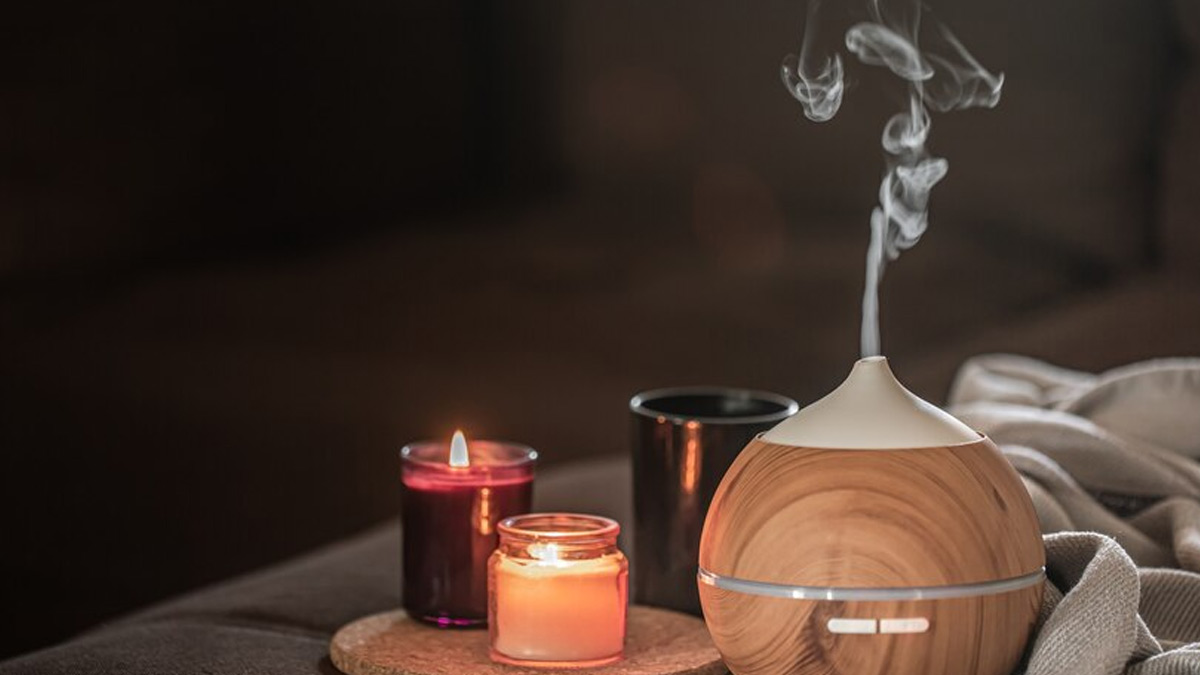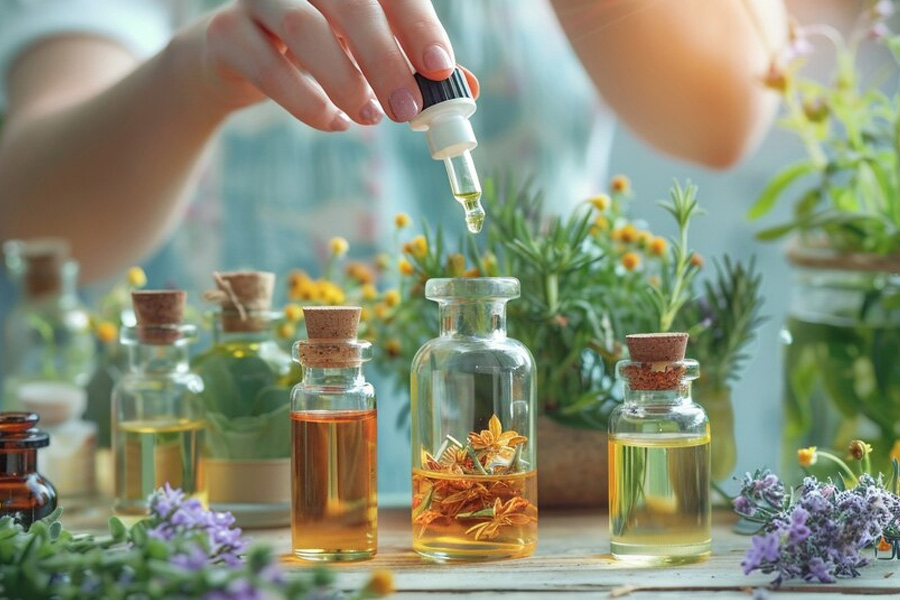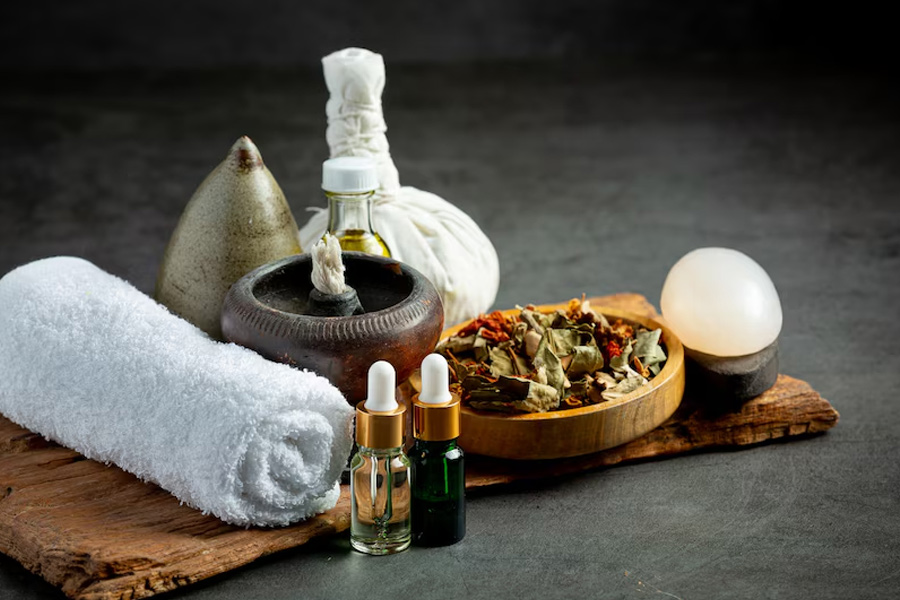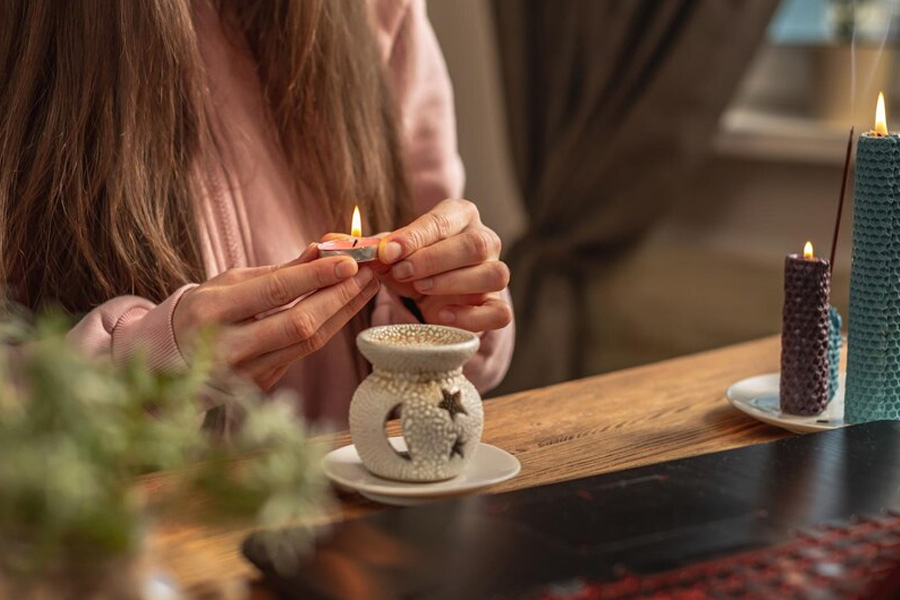
Aromatherapy, the practice of using essential oils for therapeutic benefits, is gaining popularity, especially among younger generations dealing with increased mental health challenges. The science behind aromatherapy's effectiveness lies in the connection between our sense of smell and the brain's emotional center.
Table of Content:-
To understand the science behind the scents and aromatherapy, OnlyMyHealth spoke to Ridhima Kansal, Director, Rosemoore, Gurugaon. Our team also interacted with Dr Gorav Gupta, Psychiatrist and Co-founder, Emoneeds, Delhi NCR, to understand how aromatherapy works for mental health.
Essential Oils And Aromatherapy

Explaining the importance of inhaling essential oils for mental health, Ridhima Kansal said, “When we inhale essential oils, their molecules interact with olfactory receptors in the nose, which send signals directly to the limbic system—the part of the brain responsible for emotions, memories, and arousal.” This direct connection explains why certain scents can evoke powerful emotional responses and memories.
Lavender oil is a prime example of how aromatherapy can aid mental health. Research has shown that inhaling lavender can reduce anxiety and improve mood due to its active compounds like linalool and linalyl acetate. According to Kansal, these compounds interact with the brain's neurotransmitters, providing a calming effect similar to that of anti-anxiety medications, but without the associated side effects. Adding, Dr Gupta said, “Similarly, bergamot oil has been found to reduce cortisol levels, the body's primary stress hormone, which can help alleviate feelings of stress and anxiety.”

Also read: All About Aromatherapy And Essential Oils For Holistic Healing
Known for its invigorating scent, peppermint oil has been found to enhance cognitive performance and reduce fatigue. Kansal said, “This makes it a favorite among students and professionals seeking to boost focus and energy.” Scientific studies support these effects; for instance, research published in "Frontiers in Psychology" indicates that essential oils can alleviate symptoms of depression and anxiety, demonstrating their potential as complementary therapies for mental health.
Another essential aspect of aromatherapy's efficacy is its influence on the autonomic nervous system. Dr Gupta explained, “Essential oils like chamomile and ylang-ylang have been shown to activate the parasympathetic nervous system, which is responsible for the body's 'rest and digest' functions. This activation helps counteract the 'fight or flight' response of the sympathetic nervous system, promoting a state of calm and relaxation. This physiological shift can significantly impact mental health by reducing symptoms of stress and anxiety.”
Quality Sleep and Aromatherapy

Aromatherapy can also enhance sleep quality, which is crucial for mental well-being. Dr Gupta said, “Essential oils such as lavender, valerian, and cedarwood have sedative properties that can help improve sleep patterns. Quality sleep is foundational for mental health, as it allows the brain to process emotions, consolidate memories, and repair itself.” Poor sleep is often linked to heightened stress, anxiety, and depression, making the sleep-enhancing benefits of aromatherapy particularly valuable.
Also read: Aromatherapy Massage: How Does It Work To Reduce Anxiety, Ease Depression And Boost Immunity?
The psychological effects of aromatherapy are also influenced by the power of suggestion and ritual. The act of engaging in a soothing routine, such as diffusing essential oils before bedtime, can create a sense of comfort and security. This ritualistic aspect can enhance the perceived effectiveness of aromatherapy, fostering a positive mental state through consistent, mindful practice.

Word of Advise
Advising, Kansal said, “While aromatherapy is not a replacement for professional medical treatment, it can serve as a valuable adjunct therapy. For those navigating the pressures of modern life, aromatherapy offers a natural, effective way to support mental health.” The growing body of research underscores the physiological and psychological benefits of essential oils, making them a credible option for those seeking holistic approaches to mental wellness.
Conclusion
According to Dr Gupta, the science behind aromatherapy's benefits for mental health involves a multifaceted interaction between the olfactory system, neurotransmitters, the autonomic nervous system, and psychological factors. Concluding, Kansal said, “By harnessing the power of scents to influence the brain's emotional center, essential oils can promote relaxation, improve mood, and enhance cognitive function.”
Also watch this video
Read Next
Mental Health Matters: Expert Explains The Link Between Depression And Increased Body Weight
How we keep this article up to date:
We work with experts and keep a close eye on the latest in health and wellness. Whenever there is a new research or helpful information, we update our articles with accurate and useful advice.
Current Version